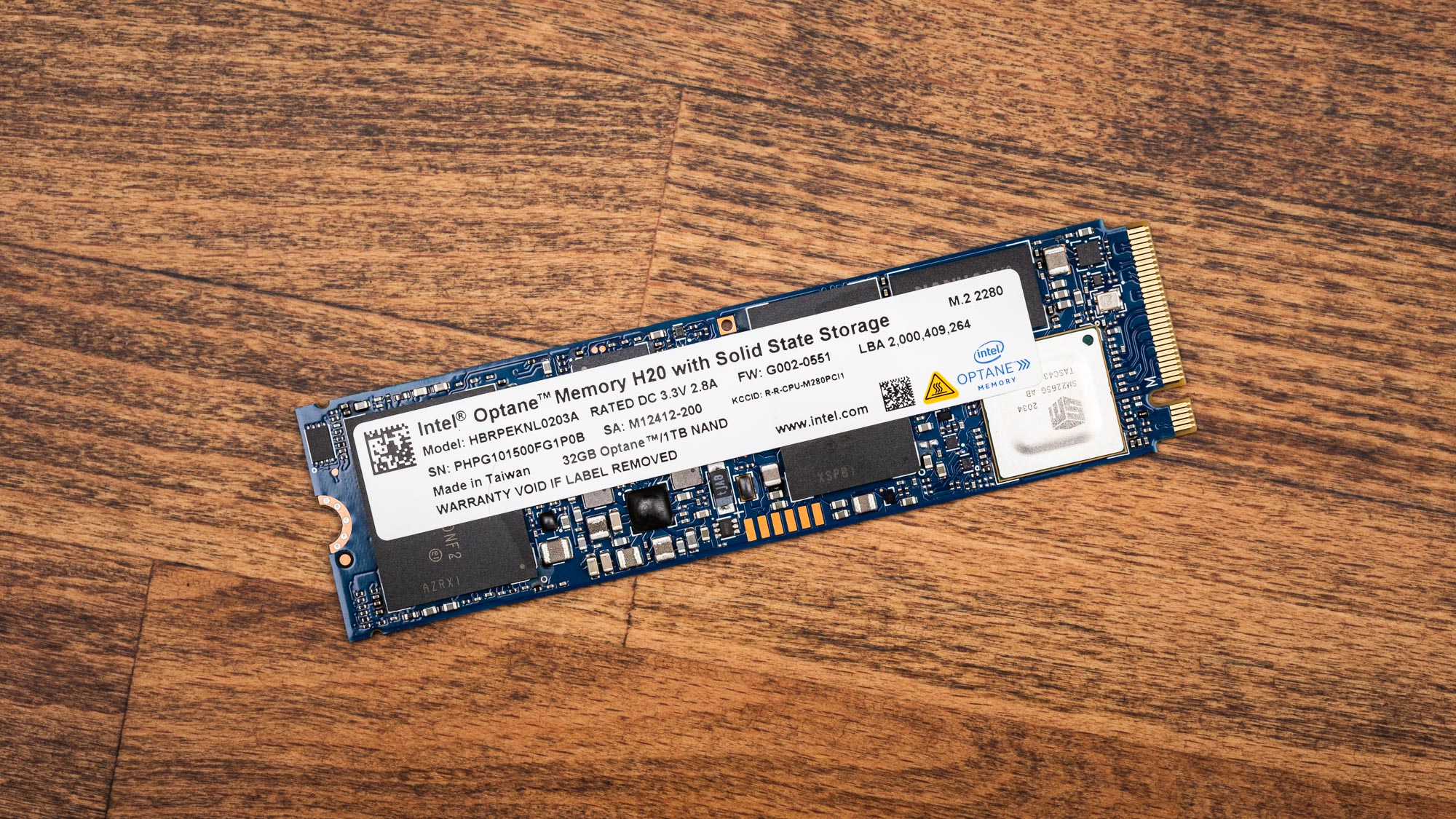Why you can trust Tom's Hardware
Intel’s Optane Memory H20 is an OEM-only product, but it’s still a very interesting piece of hardware that deserves recognition. Through well-refined caching, Intel’s H20 does speed up common workloads. However, not all workloads benefit quite to the same degree. While Intel’s latest generation of QLC flash brings innovation and improvement over its past products, the flash still poses issues for those who like to push their storage to its limits.
The H20 improves game loading performance if you play similar levels over and over again, but the initial load times will trail the H20’s full potential, as well as competing SSDs. We noted that PCMark 10’s workloads were greatly accelerated thanks to the Intel Optane Memory H20’s caching. Still, we also noticed slower performance than the 670p due to its restricted bandwidth in other workloads.
The Intel H20's sustained write performance is about what we would expect from a QLC SSD — fast within the cache, but it falls on its face once the cache is exhausted. The cache space recovers at a rapid and predictable rate and, given enough free space, is large. It shouldn’t pose many issues with most daily applications, even when the SSD is 50% full, as we normally test SSDs.
Power consumption can be an issue for mobile applications, and for that reason, the Intel H20 comes with PCIe 3.0 support rather than 4.0. The increased power and heat output for the Gen4 PHY outweighs the advantage in power consumption. Leveraging a slower interface helps reduce power consumption and thus increases off-charger session times.
The main issue behind the H20s limited speed may also tie in with the restrictions of the chipset architecture. While AMD’s X570 has a PCIe 4.0 x4 connection for most SSDs through both direct to CPU lanes and its PCH, but Intel's 500-series chipsets are limited to PCIe 3.0. The PCH is a critical requirement for the Optane memory portion of the H20, so Optane acceleration can’t be used with the direct-to-CPU PCIe 4.0 lanes.
As an OEM-only product, the Intel Optane Memory H20 demonstrated responsive performance under various workloads that can benefit from its Optane caching. It is not quite the fastest, nor most efficient SSD, with all that hardware packed onboard, but it does well for most mobile applications. We wish the company would develop a single controller that could optimally manage both storage media. Given Intel’s greater focus with a trimmed-down Optane product portfolio, maybe it’ll cook that up in the future.
MORE: Best SSDs
Get Tom's Hardware's best news and in-depth reviews, straight to your inbox.
MORE: How We Test HDDs And SSDs
MORE: All SSD Content

Sean is a Contributing Editor at Tom’s Hardware US, covering storage hardware.
-
mac_angel seriously confused at why anyone, especially Intel, is releasing new PCIe gen 3 products still. They've been years behind AMD and PCIe gen 4, and are even saying they are releasing PCIe gen 5 later this year. All of which are backwards compatible, so the excuse of a lot of people still have PCIe gen 3 doesn't cut it.Reply
I was going to add, "especially with AMD's market share skyrocketing", but I'm not so sure if that's the case any more. AMD has suffered the stock issue while Intel's new CPUs haven't as much. Even myself, I was waiting months to try to get an AMD Ryzen 9 5900X, but could never find stock. What I did find last month was an Intel Core i9 11900k. "A bird in the hand..." and all that crap. -
Sleepy_Hollowed ReplyPhil318 said:Hi, I have 16 GB intel optane memory. Is there a way I can use it for my Ryzen 5?
There's no easy answer for this: It can work, but it depends on the motherboard support for it, you'd have to check the QVL the manufacturer has (hopefully they do) to check which one has support for it. It's also highly dependent on the Optane product.
For example, Asrock has a QVL but you're going to have to hunt around with product numbers. This one works: MEMPEK1W032GA
QVL URL: https://asrock.com/mb/AMD/X570%20Pro4/index.asp#Storage
